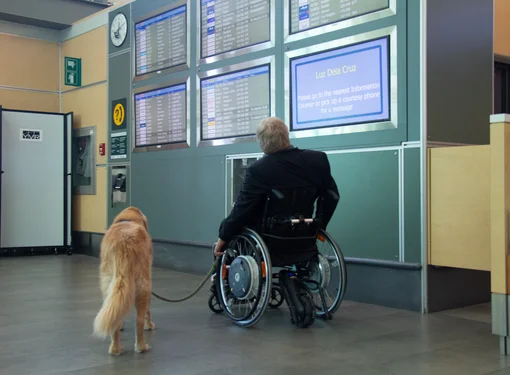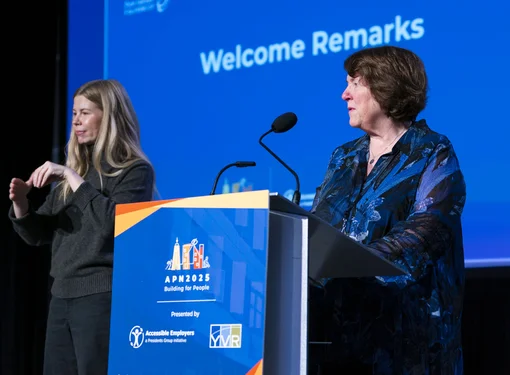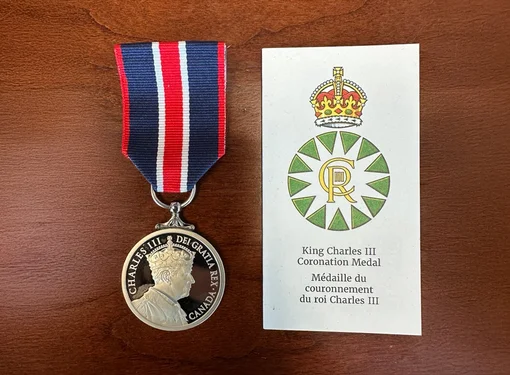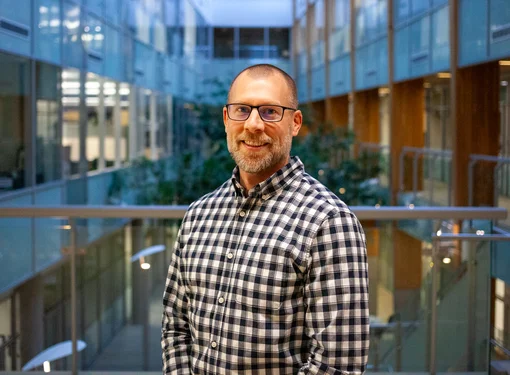Trailblazing Access to the Great Outdoors
Canada has always been world-renowned for its picturesque landscapes. And due to the pandemic and its residual effects, there’s been a resurgence in appreciating the rugged allure of this country’s terrain. However, for many with a mobility disability, the great outdoors remains out of reach.
Enter Haley Flaro. As the executive director at Ability New Brunswick and chair of an Accessibility Standards Canada Technical Committee, she’s at the forefront of establishing the nation’s inaugural standard for outdoor spaces. The Rick Hansen Foundation is pleased to share that Haley will be presenting her insights at the Outdoor Spaces session during the #APN2024: Building Beyond conference March 27 and 28, alongside Tim Ross, Marcia Yale, and Tilak Dutta.
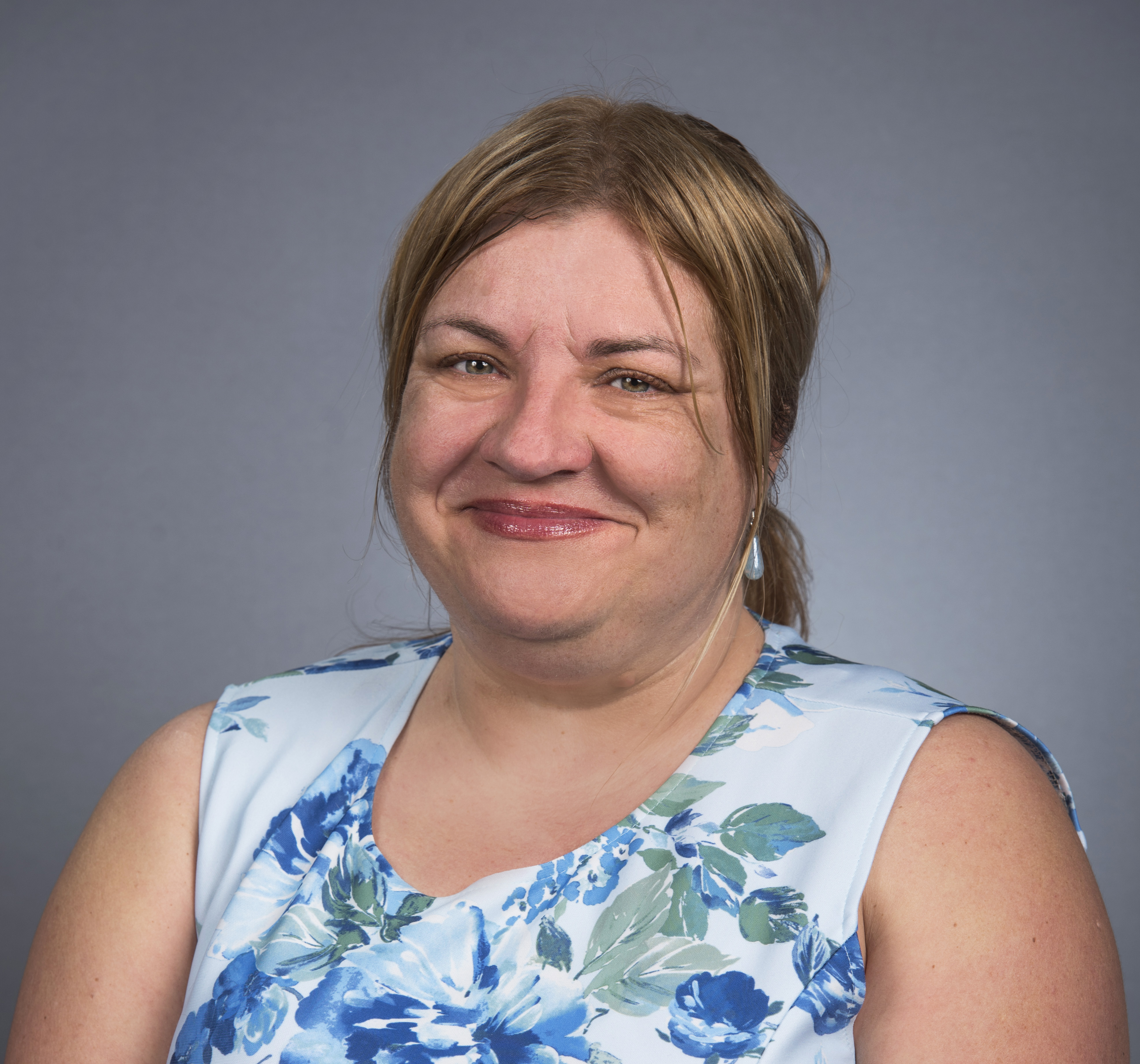
Swings to Streams
“New Brunswick may be a largely rural province but there are so many good stories about collaborations to make outdoor spaces more accessible for everyone, from children to seniors,” said Haley. “People often think the East Coast is still behind but there’s actually a lot of advancement that’s been happening. Conversations are happening and there’s an increased focus on the outdoors, especially since the pandemic when people started making exceptional use of our trail systems, of our viewing stations at waterfalls, and of all the other outdoor experiences.”
Through her work, Haley has witnessed a recent shift in the culture of accessibility. From schools to trails, more organizations are increasingly prioritizing accessibility in design – rather than as an afterthought. Children and youth are embracing outdoor classrooms, immersing themselves in nature’s wonders firsthand. Said Haley: “New Brunswick has a lot of bodies of water, from sea to lakes, and countless species such as mushrooms, insects, and birds. It provides such an amazing hands-on experience. I know that I would have much preferred, as a child, to have learned about worms by putting my hands in the dirt rather than sitting in a classroom and looking at pictures in a book.”
Playgrounds symbolize meaningful accessibility, she added. Even if playground equipment is designed for inclusion, its placement on a gravel surface poses an insurmountable barrier for children or their family members who may use a mobility device or a stroller.
“The conversations have really ramped up about how we can’t have children sitting on the sidelines of playgrounds or outdoor learning classrooms, and not being able to participate,” said Haley. “That’s not inclusion – that’s segregation and isolation. And it has a significant impact on well-being. This is part of the bigger conversation about how critical the outdoor environment is to physical wellness, emotional health, and just good old fresh air.”
Looking at the Big Picture
Just as with playgrounds, trail-building and trail renewal projects must prioritize seamless accessibility. It’s meaningless to label a trail accessible if its entry point is too steep for people using mobility devices. Haley added that trails should also feature well-packed soil or cruncher dust, good alternatives to costly pavement.
“I like to talk about materials because it’s often a forgotten element of accessibility,” said Haley. “I really dislike gravel. ‘Gravel is for potholes,’ as my dad, an engineer, used to say. And he’s right, it shouldn’t be used on trails or on playgrounds because nobody is going to be able to roll on it using a stroller or a wheelchair. I’ve been talking a lot about materials lately because when people do get the design right, they often forget to take it further into the materials discussion.”
While Haley has been passionate about accessibility and disability inclusion throughout her career, it has been a lifelong passion stemming from the lived experience of her mother, who used a rollator and then a wheelchair.
“I remember how hard it was 20 years ago to find accessible picnic tables and accessible pathways so I could take her into these spaces,” recalled Haley. “To be inclusive and aware, you don’t pick up on these things until you have had the experience yourself or experienced it with someone with a disability. I’m always getting dirty looks for using power door openers as I don’t have a mobility disability,” she said.
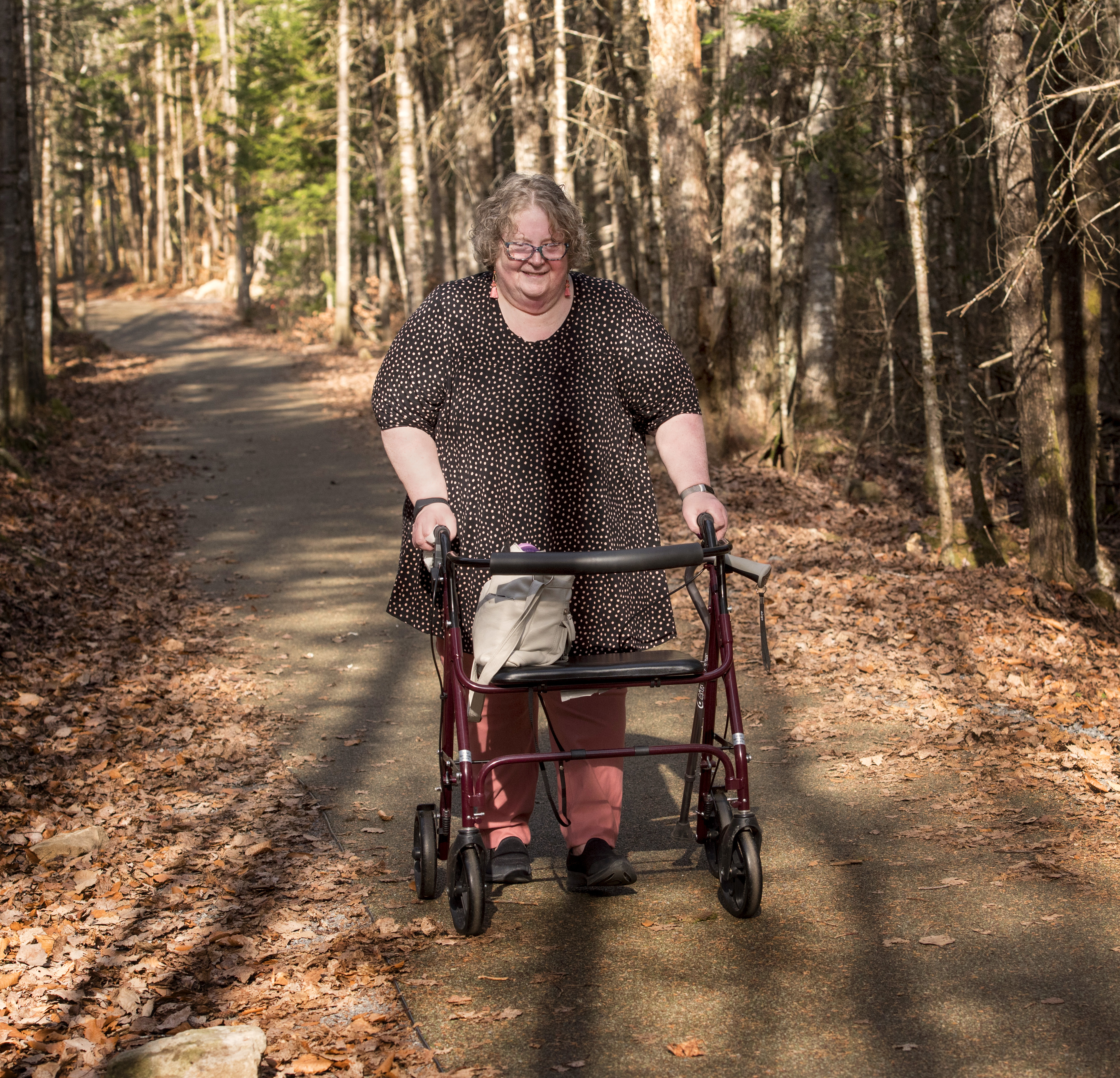
“But, for me, it is a childhood trauma of trying to push my mother through doorways and me, crying behind her, because it was so difficult. So, I test them everywhere I go and if they’re not working, I bring it to the building maintenance’s attention.”
#APN2024: Building Beyond is a conference dedicated to forging a future that is inclusive and accessible for people of all ages and abilities. The two-day conference features an exciting line-up of national and international speakers. Tickets for in-person attendance at the Vancouver Convention Center and online are available through our website.


